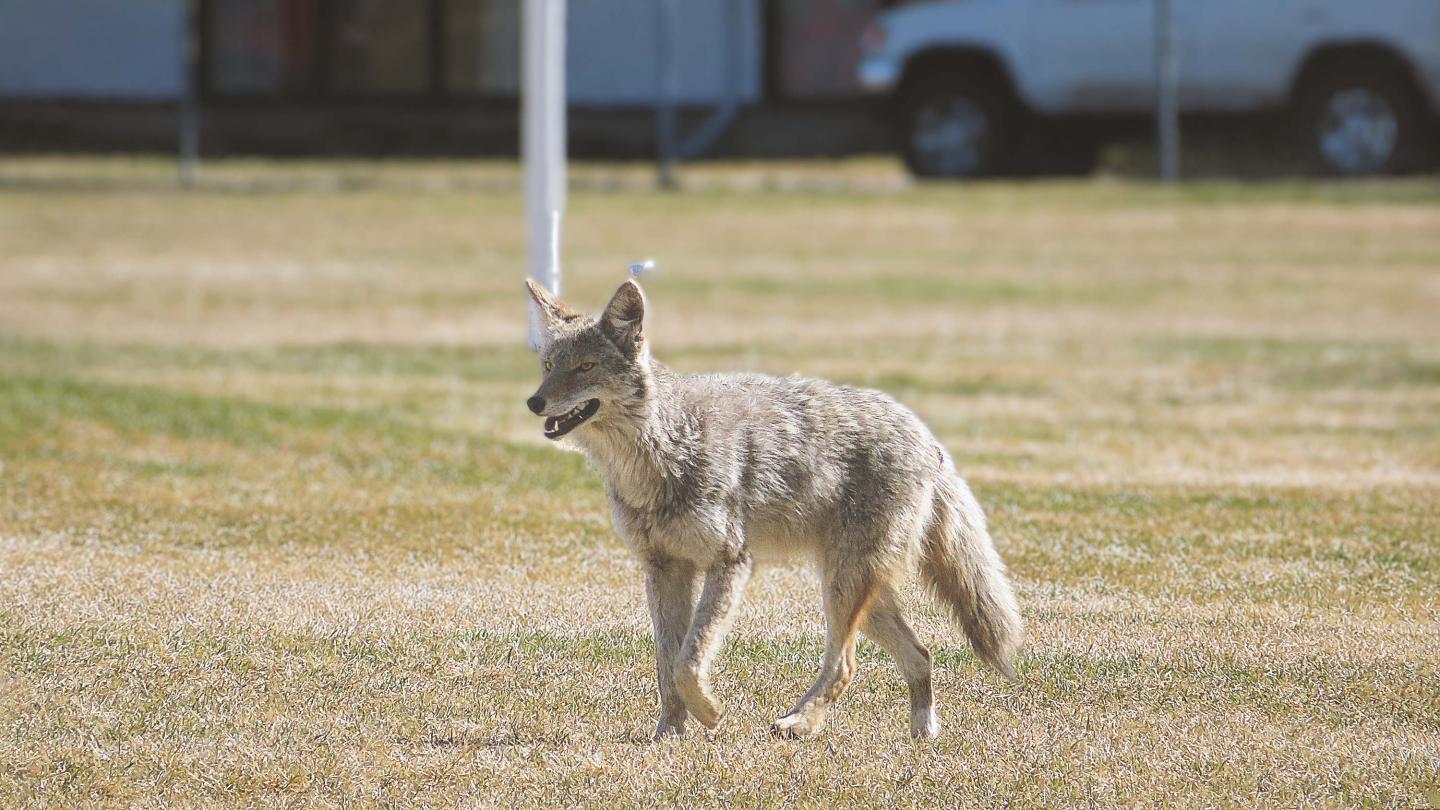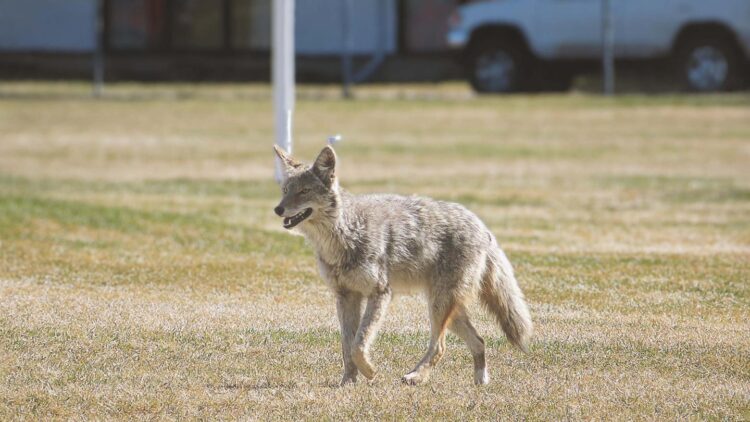New U of A research illustrates link between anthropogenic diet, human-like gut bacteria and poor health.

Credit: Colleen Cassady St. Clair
A diet rich in human food may be wreaking havoc on the health of urban coyotes, according to a new study by University of Alberta biologists.
The research team from the Faculty of Science examined the stomach contents, gut microbiome and overall health of nearly 100 coyotes in Edmonton’s capital region. Their results also show coyotes that consume more human food have more human-like gut bacteria–with potential impact on their nutrition, immune function and, based on similar findings in dogs, even behaviour.
“If eating human food disturbs the ‘natural’ coyote gut bacteria, it is possible that eating human food has the potential to affect all these other aspects of coyote health and behaviour as well,” said Scott Sugden, lead author and recent master’s graduate from the Department of Biological Sciences.
“The gut microbiome has been consistently related to various aspects of human health and behaviour, and the same is true for animals,” Sugden noted.
The research also shows that urban coyotes, which eat more human food, also have lower body fat, stressed immune systems and more parasites. The study builds on Sugden’s previous research into the relationship between an anthropogenic, or human, diet and the health of urban coyotes.
Urban coyotes that subsist on human food have more human-like gut bacteria–which could affect their health, immune function and possibly even their behaviour, according to a U of A study. (Photo: Colleen Cassady St. Clair)
“If access to human food has the potential to affect coyote health and behaviour by disturbing the gut microbiome, it’s important to address the root of the issue by limiting their access to protein-poor human food,” explained Sugden.
“This would likely be more effective, and easier to implement, than trying to manage aggressive coyotes and unhealthy coyotes as separate issues,” he said, adding that another U of A project will more directly address bold urban coyotes.
###
Sugden completed the research under the supervision of ecologist Colleen Cassady St. Clair and microbiologist Lisa Stein, both professors in the Department of Biological Sciences.
The research was funded by the Natural Sciences and Engineering Research Council of Canada. Collaborators include U of A undergraduate student Kyra Ford and Dana Sanderson from MacEwan University, as well as the City of Edmonton’s Animal Care and Control Centre and Animal Damage Control in Sherwood Park.
The study, “An altered microbiome in urban coyotes mediates relationships between anthropogenic diet and poor health,” was published in Scientific Reports.
Media Contact
Katie Willis
[email protected]
Original Source
https:/
Related Journal Article
http://dx.





